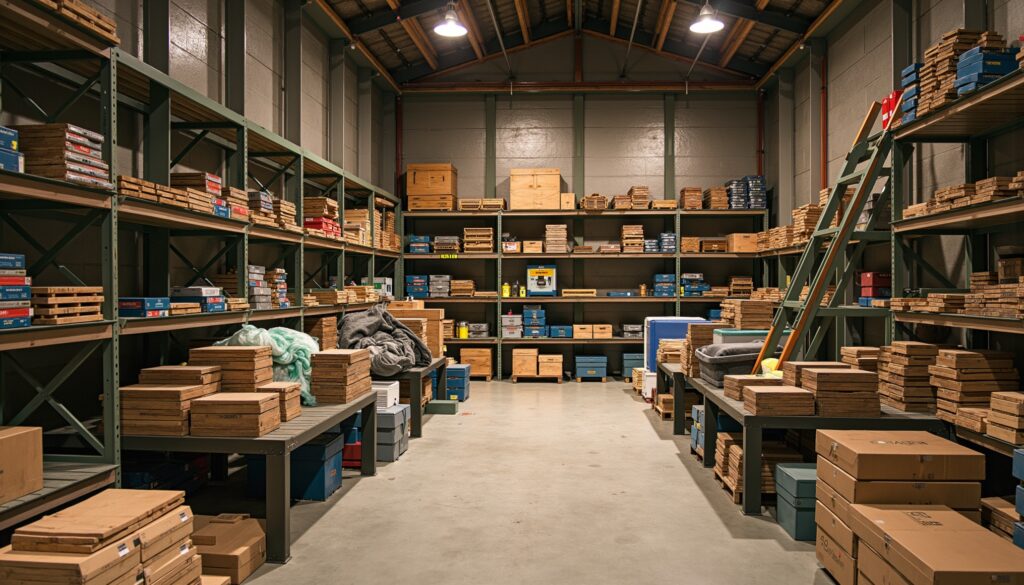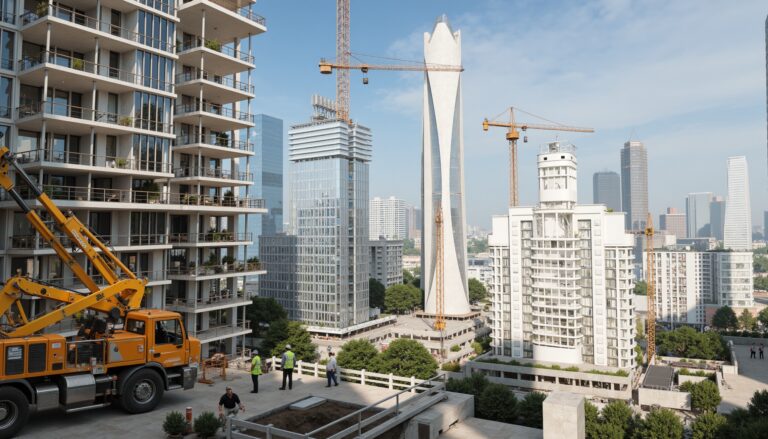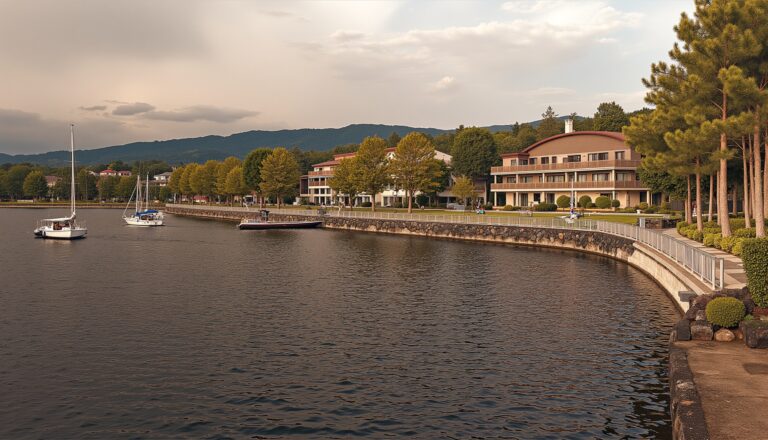When it comes to construction projects, whether building a new home or renovating an existing one, understanding building materials costs is crucial for staying within budget.
With fluctuating prices and a wide variety of materials available, knowing what influences these costs and how to shop smartly can save you significant money.
In this comprehensive guide, we’ll explore the various factors affecting building materials prices, the different types available on the market, and tips for making budget-friendly choices.
Let’s dive into the essential information you need to make informed decisions for your construction project.

Key Takeaways
- Building materials costs are influenced by various factors including demand, availability, and market trends.
- Understanding different types of building materials can help in making cost-effective choices.
- Researching prices and comparing suppliers is crucial for staying within budget during construction.
- Implementing strategies for budget-friendly purchasing can significantly reduce overall building costs.
- Informed decision-making regarding building materials leads to more cost-effective construction outcomes.
1. Introduction to Building Materials Costs
When embarking on a construction project, understanding building materials costs is essential for budgeting and planning effectively.
The prices of common materials such as concrete, wood, and steel can significantly influence the overall expenditure of any building endeavor.
Factors such as quality, supplier pricing, and market demand contribute to the fluctuation of these costs.
Moreover, regional differences often play a pivotal role; for instance, construction projects in urban areas may face higher building materials costs due to increased transportation fees compared to rural settings.
By researching and staying informed about the current market trends, builders and homeowners can strategize better, potentially exploring alternative materials or sourcing options that fit within their financial framework.
2. Factors Influencing Building Materials Prices
When embarking on a construction project in Costa Rica, understanding the factors influencing building materials costs is crucial for budgeting effectively.
Several elements play a significant role in determining these prices.
Firstly, the demand and supply dynamics are influential; during peak construction seasons, increased demand can drive up costs.
Additionally, the type and quality of materials desired greatly affect pricing; sustainable and eco-friendly options, which have gained popularity, often come at a premium.
Transportation costs also contribute, particularly for materials sourced from abroad, and fluctuations in global commodity prices can impact local costs significantly.
Finally, currency exchange rates can sway the price of imported building materials, making it essential for investors and builders to stay informed about economic trends.
In summary, by comprehensively understanding these factors, property buyers and builders can make informed decisions that align with their financial plans and project goals.
‘The bitterness of poor quality remains long after the sweetness of low price is forgotten.’ – Benjamin Franklin

3. Types of Building Materials and Their Costs
When considering a new construction or renovation project in Costa Rica, understanding the various building materials costs is essential for budget planning.
The tropical climate of Costa Rica influences the selection of materials, making durability and resistance to humidity primary concerns.
Common building materials include concrete, which is favored for its strength and resilience, generally costing between $80 to $120 per cubic meter.
Additionally, wood is a popular choice for its aesthetic appeal, especially in residential properties, with prices varying significantly based on the type: local hardwoods like teak can range from $5 to $10 per board foot.
Steel is also widely used, particularly for framing, with costs fluctuating based on market conditions but averaging around $1,000 to $1,500 per ton.
Moreover, roofing materials, such as clay tiles or metal sheets, bring different price tags, where clay tiles can go for $10 to $20 per square meter, whereas metal sheets might be cheaper at $5 to $15 per square meter.
In the competitive landscape of Costa Rica real estate, knowing these building materials costs helps potential homeowners and investors make informed decisions while maximizing their investment.
4. Tips for Budget-Friendly Purchasing of Building Materials
When embarking on a construction or renovation project in Costa Rica, managing building materials costs is crucial to staying within budget.
Here are some tips for purchasing building materials affordably without compromising on quality.
First, consider sourcing materials locally—local suppliers not only provide cost-effective options but can also offer insights into the best products suited for the region’s climate and environmental conditions.
Additionally, always compare prices across multiple vendors; online platforms can be useful for research, but visiting physical stores can sometimes unveil discounts or seasonal sales.
Joining local construction forums or communities can also help you discover second-hand materials or bulk purchase discounts.
Lastly, be proactive about planning ahead, as buying in advance can lead to significant savings and allow for greater negotiation on prices with suppliers.
By strategically managing building materials costs, you can ensure that your project in beautiful Costa Rica remains on track and meets your financial expectations.

5. The Importance of Pricing Research and Comparison
When exploring options in the Costa Rica real estate market, one key aspect to consider is the importance of pricing research and comparison, particularly when it comes to building materials costs.
Understanding the price variations in essential materials can significantly impact your overall budget and investment strategy.
In a vibrant market like Costa Rica’s, where the cost of goods can fluctuate based on location and availability, conducting thorough research allows potential buyers and investors to make informed decisions.
By comparing prices from local suppliers and factoring in transportation costs to various regions, you can gain a clearer picture of your total expenses.
This diligence not only helps in avoiding unexpected costs but also provides leverage when negotiating with contractors or sellers.
Ultimately, a solid grasp of building materials costs, paired with strategic research, will aid in securing the best possible deals in Costa Rica’s competitive real estate landscape.
6. Conclusion: Making Informed Decisions for Cost-Effective Construction
In conclusion, navigating the complexities of building materials costs is crucial for anyone looking to embark on a construction project in Costa Rica.
By understanding the fluctuating prices and sourcing local options, homebuilders can significantly reduce expenses without compromising quality.
It is essential to conduct thorough research, consult with local experts, and consider sustainable alternatives to ensure that your investment is both cost-effective and environmentally responsible.
Moreover, staying informed about the latest trends in materials and construction techniques will empower you to make choices that align with your budget and design aspirations.
Ultimately, informed decision-making in this area will not only save you money but will also contribute to the overall success and efficiency of your building endeavor.
Frequently Asked Questions
What are the main factors that influence building materials costs?
Building materials costs can be influenced by various factors including supply and demand, location, transportation costs, quality of materials, and seasonal trends in construction.
How can I find budget-friendly building materials?
To find budget-friendly building materials, consider sourcing from local suppliers, exploring second-hand or reclaimed materials, purchasing in bulk, and taking advantage of sales or discounts.
What types of building materials are commonly used in construction?
Common types of building materials include wood, concrete, steel, brick, glass, and insulation materials.
Each type has its own cost implications and durability features.
Why is pricing research important when purchasing building materials?
Pricing research is crucial as it helps consumers compare costs, identify potential savings, and avoid overpaying for materials.
It enables informed decision-making that aligns with budget constraints.
Can I use online tools to compare building materials costs?
Yes, there are several online tools and platforms that allow you to compare building materials costs from different suppliers, helping you to find the best deals and make cost-effective purchasing choices.





